【文/洪健昭 譯/蕭雯】
論歷史、地緣、法理 台灣主張最有力、日本最薄弱
Madame Chiang Kai-shek was a diplomat par excellence. But she was not familiar with Japanese history. Had she had enough knowledge of the history of the Land of the Rising Sun, which was facing an imminent crushing defeat in World War II, there wouldn't have been a sovereignty issue over the Tiaoyutai Islands, known in Japanese as the Senkakus.
蔣宋美齡是位傑出的外交家,只是對日本史不夠熟諳。接近二戰尾聲、日本潰不成軍之際,倘若宋美齡當時對日本史有充足的了解,那麼釣魚台(日文稱尖閣諸島)主權爭議也就無從而生。
She spoke for her husband, President Chiang, at the Cairo Conference of 1943, where he agreed with President Franklin D. Roosevelt of the United States and British Prime Minister Winston Churchill that Formosa and the Pescadores would have to be restored to the Republic of China after the war. Had she suggested that Japan which annexed the kingdom of the Ryukyus as the prefecture of Okinawa in 1872 return the entire island chain to the Ryukyuans, Roosvelt and Sir Winston would have agreed to restore an independent sovereign state of the Ryukyus like Korea, which was annexed by Japan in 1910. The kingdom of the Ryukyus, which was a vassal state of China since the beginning of the Ming Dynasty (1372), never claimed the Tiayutais as part of its territory.
1943年,蔣介石總統參加開羅會議,與美國羅斯福總統及英國首相邱吉爾達成協議,將台灣及澎湖在戰後歸還中華民國。假使當時蔣夫人提議讓琉球恢復獨立,小羅斯福及邱吉爾就會比照韓國的處理方式,恢復琉球的主權獨立。日本於1872年兼併琉球王國,劃歸為沖繩縣,韓國則是在1910年遭日本併吞。琉球王國自明朝即為中國的藩屬國,從未將釣魚台列嶼納入其領土。
美國違反波茨坦宣言 開啟釣魚台爭端
Japan a c cept ed the t e rms of the Pot sd am Declaration to surrender to the Allies to end the war. Stipulations set forth in the Potsdam Declaration provide that“Japanese sovereignty shall be limited to the islands of Honshu, Shikoku, Hokkaido, Kyushu, and such minor islands as we (the co-signatories of the declaration, of which the Republic of China was one) determine. When the United States returned the Okinawa chain to Japanese sovereignty, the Republic of China was not consulted. Subsequently, Taipei filed a protest with the United States. The Republic of China does not accept the return of the Okinawas to Japanese rule.
二戰末期,日本接受「波茨坦宣言」而無條件投降,結束戰爭。該宣言言明「日本之主權將限於本州、北海道、九州、四國,及吾人(含中華民國在內的主要盟國)所決定之其他島嶼。」1972年美國未與中華民國協商,逕自將沖繩群島歸還日本,中華民國向美國抗議,表示不接受此行政權移交的協定。
What the Japanese call the Senkakus, a translation from English, include Uotusuri-jima or Tiaoyutao, Kuba-jima or Huangweiyu, Taisho-jima or Chiweiyu, Minami-ko-jima or Nanhsiaotao, Kita-ko-jima or Peihsiaotao, Oki-no-kita-jima or Tapeihsiaotao, Oki-no-minami-iwa or Nanhsiaotao , and Tobise or Fechiaoyen. They were posted in British Royal Navy charts as the Pinnacle Islands in the mid-nineteenth century. The Japanese literally translated the English name to Senkaku.
事實上,所謂尖閣諸島實從英文翻譯而來,一共有八個島,就是:魚釣島(即釣魚島)、久場島(即黃尾嶼)、大正島(即赤尾嶼)、南小島、北小島、沖北岩(即大北小島)、沖南岩(即大南小島)、飛瀨(飛礁岩)。英國皇家海軍在19世紀中將釣魚台列嶼列入皇家海軍的海圖,名之為Pinnacle Islands,直譯成日文就是「尖閣諸島」。
The uninhabited islets and the rocks sit on the edge of the continental shelf of mainland Asia, and are separated from the Ryukyu Islands by the Okinawa Trough. They are 140 kilometers east of Agincourt or Penchiayu which belongs to the Republic of China, 170 kilometers north of Ishigaki-jima of the Ryukyu Islands, and 186 kilometers northeast of Keelung. At present, Taiwan places them under the jurisdiction of Toucheng, Yilan County, whereas Japan put them under the administration of Okinawa and the People’s Republic of China claims them as part of its Taiwan Province.
這八座無人島礁坐落在東海大陸礁層邊緣上,位於彭佳嶼東方140公里、石垣島北方170公里、基隆東北方186公里處,沖繩海槽把八座島礁與琉球群島隔開。台灣把釣魚台列嶼劃歸宜蘭縣頭城鎮管轄,日本則劃入沖繩縣的管轄範圍,而中國大陸則稱其為台灣省的一部分。
日據時期被視為台灣附屬島嶼
As a matter of fact, the islets were known to China probably since 770 B.C. based on a passage in the Shan Hai Ching , Chapter “Haineipei ching,” and were controlled by the Qing Dynasty along with Taiwan, which was ceded to Japan in 1895. In fact, the Empress Dowager granted them to her court minister Sheng Hsuan-huai as a fief in perpetuity. Sheng's granddaughter presented the Empress Dowager's brief endowment edict to the Academia istorica in Taipei in 1973. Between 1895 and 1945, Japan administered the islets as part of Taiwan.
早在西元前770年,中國便知道釣魚台列嶼的存在,《山海經》海內北經中有關釣魚台的記載可資證明。台灣及釣魚台列嶼皆曾受清朝統治,其中台灣於1895年割讓給日本。慈禧太后曾於1893年將釣魚台賜封予盛宣懷,其後1895至1945年間,日本將釣魚台視為台灣的島嶼。1973年,盛宣懷孫女將慈禧賜封的諭旨捐給國史館。
When Taiwan was restored to the Republic of China at the end of the Second World War, the islets were considered to be returned at the same time, though there is no official documentation in the Sino-Japanese Peace Treaty signed in Taipei in 1952. After the peace treaty was abolished in 1972 when Japan normalized relations with the People's Republic, Beijing began to claim sovereignty over the islets as part of its province of Taiwan.
台灣於二戰結束後歸還中華民國,儘管1952年簽署的《中日和約》(台北和約)無載明釣魚台的歸屬問題,但是中華民國認為釣魚台是和台澎一起歸還。《中日和約》於1972年中華人民共和國與日本關係正常化時廢止,自此中國便主張領有該列嶼,把釣魚台劃入台灣省管轄範圍。
Meiji Japan formally annexed the kingdom of the Ryukyus, with the Senkaku Islands as the Sino-Japanese boundary. In 1885, the Japanese governor of Okinawa petitioned the Meiji government asking that it take formal control of the Senkakus, but Premier Inoue Kaoru commented that the islands lay near to the border area with the Qing Empire and that they had been given Chinese names. He was concerned that if Japan proceeded to erect a landmark staking its claim, it would make Beijing suspicious. Following his advice, Minister of the Interior Yamagata Aritomo turned down the request to incorporate the islets, insisting that this matter should not be“revealed to the news media.”
是否為台灣附屬島嶼是關鍵
明治維新時期,日本兼併琉球王國,並以尖閣諸島作為中日疆界。1885年,沖繩縣知事上呈將尖閣諸島劃歸沖繩縣管轄的請求,時任外務卿的井上馨認為釣魚台近鄰清朝,且清政府已加以命名,倘若日本執意在島上建立標示,定會招致清政府猜忌。內務卿山縣有朋採行井上的建言,擱置兼併尖閣島嶼的提議,並囑咐此事不要對媒體公開。
On January 14, 1895, Japan officially incorporated the islets under the administration of Okinawa, stating that it had conducted surveys since 1884 and that they were terra nullius because there was no evidence to suggest that they had been under Qing Chinese control. The Treaty of Shimonoseki that ended the first Sino-Japanese War in 1895 stipulated that Qing China would cede to Japan“the island of Formosa together with all islands appertaining or belonging to said island of Formosa.”There is a disagreement as to whether the Tiaoyutais or Senkakus are implied to be part of the“islands appertaining or belonging to said island of Formosa.”
1895年1月14日,日本政府正式將釣魚台併入沖繩縣,並表示1884年以來的實地調查顯示,釣魚台沒有受過清朝統治的跡象,因此屬於無主地。1895年,中日簽定《馬關條約》,結束甲午戰爭,條約載明清朝須將台灣及其附屬島嶼割給日本,關於釣魚台是否包含在「附屬島嶼」已有爭議。
The Okinawa Islands were occupied by the United States toward the end of the Second World War in 1945. Washington restored the Amami Islands to Japan in 1953, but the Republic of China protested because it was not consulted in accordance with the stipulations in the Potsdam Declaration. Moreover, the transfer was ncompatible with the peace treaty signed at San Franscico, of which only Article 3 obligates Japan to concur in the proposal of the United States to the United Nations to place under its trusteeship system, with the United States as the sole administering authority, certain islands including the Ryukyus. At the same time, the treaty stipulates that pending the making of such a proposal and affirmative action thereon, the United States would have the right to exercise all and any powers of administration, legislation and jurisdiction over the territory and inhabitants of these islands, including their territorial waters. There is no provision in the treaty which can be construed as authorizing the United States to transfer the islands to Japan, or any other power at any time.
美託管琉球 但無權移交給日本
1945年,二戰接近尾聲之際,美軍攻占琉球。1953年美國違背「波茨坦宣言」由同盟國共同決定島嶼主權的規定,未先與我政府協商,就片面將琉球群島最北端的奄美群島交給日本,我政府隨即發出嚴正抗議。此外,這項統治權的轉移還違反了《舊金山和約》,其第三條明定日本應同意美國向聯合國作的提案,也就是將琉球在內的諸多島群交給美國託管,而且美國是唯一的管理當局。在此提案通過之前,美國對上述地區、所屬居民與所屬海域擁有行政、立法、司法權利。但是《舊金山和約》中,沒有任何一條明定美國日後有權將託管地移交給日本。
In 1969 the United States expressed its intention to hand over Okinawa and its surrounding islands, including the Senkakus, to Japan. Subsequently, both Taipei and Beijing protested and asserted their claim to sovereignty over the islets, which Japan’s first cartographer Hayashi Shihei positioned as belonging to China, not to the kingdom of the Ryukyus, in his Sangoku-tsuran zusetsu (A Comprehensive Map of the Three Countries ) in 1785.
回溯歷史 釣魚台並非日本固有領土
1969年,美國表示有意將沖繩及釣魚台等島嶼歸還日本,中國及台灣隨即提出抗議,並主張對該群島擁有主權。事實上,日本史地學者林子平在1785年《三國通覽圖說》的標註上,將釣魚台劃歸中國,而非琉球王國。
In 1877, the Ry u k y u k ing a sked for Qing intervention to revive his former tributary relations with China. Sino-Japanese negotiations were opened at Tianjin in regard to the position of the Ryukyus. An agreement was reached in 1882. According to the agreement which Qing China refused to ratify, the kingdom of the Ryukyus would be divided in half, with all the island north of Okinawa Island belonging to Japan and those south of the same island to China. The Tiaoyutais are to the south of Okinawa Island. Though Japan erected a marker each on Kubajima and Uotsuri-jima to formally incorporate the Senakakus in 1895, its decision and action were publicized in 1950.
1877年,琉球國王向清朝求救,盼能恢復和清政府間的朝貢關係。之後,中、日就琉球問題在天津展開磋商,日本提出「分島改約」,將琉球一分為二,將琉球群島主島沖繩島以北併入日本,以南的島嶼則納在清朝版圖,釣魚台便是其一,但是清廷並沒有批准。雖然日本早在1895年便在釣魚島及黃尾嶼建立國標、強納版圖,此竊占領土的行徑卻遲至1950年才正式公開。
There was no dispute over the Tiaoyutais while Taiwan was under Japanese colonial rule. They were administered as part of Taihoku-shu or the prefecture of Taihoku or Taipei in Chinese. When a dispute over fishery rights occurred between Taihoku-shu and the prefecture of Okinawa, the Japanese high court in Tokyo ruled the rights belonged to the former, which now includes the special municipalities of Taipei and Xinbeishi, Yilan County and part of the county of Taoyuan.
日據時期,釣魚台主權問題並無爭議,治權劃歸台北州。當台北州與沖繩縣在釣魚台漁權上發生爭執,東京高等法院明白判定漁權屬於台北州。當時的台北州涵蓋現今的台北市、新北市、宜蘭縣及部分桃園縣地區。
After the war the United States continued to administer the Okinawas, including the eight uninhabited islands, which are regarded by the Republic of China as islands “appertaining or belonging to said island of Formosa” ceded to Japan and self-evidently considered to be returned along with Formosa and the Pescadores when the Treaty of Taipei was signed with Japan in Taipei in 1952. Under the agreement, Japan renounced Taiwan and Penghu but did not specify the Republic of China as the country to which the islands would be restored. The United States has consistently maintained that there was no“return”of island territories to China after the close of hostilities in World War II, either due to the Japanese surrender ceremonies, or according to the specifications of the post-war treaties.
美國認為沒有主權歸還問題
二戰結束後,美國管治沖繩群島(包含釣魚台列嶼),中華民國將釣魚台列嶼視為割讓給日本的「附屬島嶼」一部分,並認定1952年簽訂《中日和約》後,釣魚台列嶼將連同台灣、澎湖一併歸還。根據《中日和約》,日本放棄對台灣、澎湖的一切權利與要求,但沒有明定應返還中華民國。美國一向主張,日本投降儀式上沒有說明,或者二戰後所有簽定的條約也都沒有載明返還地的領土歸屬,因此沒有所謂「主權歸還」的問題。
In September 2010 Special Assistant to the President and Senior Director for Asian Affairs Jeffery Bade said that, “we do no take a position on the respective territorial claims of China and Japan towards the Senkaku Islands. But ? the U.S.-Japan Security Treaty covers all areas administered by Japan, and since the reversion of Okinawa from the U.S. to Japan in 1972, the Senkaku Islands have been administered by Japan.”
2010年9月,國安會亞洲事務資深主任、亞太事務副助卿貝德表示:「就中、日個別主張對尖閣諸島擁有主權一事上,我們不採取任何立場。但??《美日安保條約》包含日本行政控制之所有區域,並且就1972年我方已將沖繩行政權移交日本政府的情形來看,尖閣島應由日本管轄。」
As a matter of fact, Japan has the weakest claim of sovereignty over the Tiaoyutais. The Treaty of San Francisco nullified all the previous treaty arrangements with regard to the Senkakus, and Tokyo’s sole legitimate claim is based on the U.S. transfer of administrative authority over the uninhabited islets endowed with rich fishery resources and vast undersea oil deposits. But Japan insists that its sovereignty over the islets is “indisputable.”
釣魚台列嶼無人居住但漁獲、油藏豐富。事實上,日本對釣魚台的主權主張最為薄弱,理由是先前涉及釣魚台的所有條約規定在《舊金山和約》後失去效力。而日本唯一合法的主張,是基於美國將釣魚台列嶼行政權移交日本,但日本卻堅持釣魚台是日本的固有領土,擁有「不可爭論」的主權。
On the other hand, Taiwan has the strongest claim. Geologically, they are not part of the Okinawa chain, for they are separated by the Okinawa Trough. The Republic of China was in full control of Taiwan, including the Tiaoyutais considered“appertaining to said island of Formosa”when it concluded the Treaty of Taipei . But Taipei does not contest the Japanese coast guard patrols within the 12-mile territorial waters of the islets as their administrative authorities. All Taipei wants is to shelve the sovereignty dispute and jointly tap fishery and undersea oil resources with Japan.
台灣最有理主張釣魚台主權
相較之下,台灣的主張最有力,就地理位置上來看,沖繩海槽將釣魚台與沖繩群島隔開,而釣魚台位在亞洲大陸棚上,所以不屬於沖繩群島。《中日和約》生效後,中華民國對台享有完全管制權,台灣附屬島嶼釣魚台也包含在內。但是台灣並沒有對日本進入12海浬領海巡視表示異議,只想要先擱置主權爭議,共同開發漁業及油氣資源。
The main obstacle to the peaceful settlement of the Tiaoyutai issue remains Japan’s intransigency on the status of the islets. Tokyo dare not back down on its position that Japan has indisputable sovereignty over the tiny isles in the face of an increasingly large number of ultra-rightists who remain uneducated on Japan’s flimsy claim. These ultra-rightists also turn against the Russians who have refused to return the four dispute islands of the Kuriles, which Tokyo calls Japan’s Northern Territories.
因為日本對於釣魚台主權的態度強勢,釣魚台地位未定的爭議難以解決。近年來,日本極右派人士抬頭,日本政府在釣魚台主權上更不敢讓步,這些極右派人士並不知道日本的主張其實很薄弱。極右派人士甚至將矛頭轉向俄國,指稱俄國尚未歸還南千島群島。日本聲稱千島四島為日本的「北方領土」。
The Treaty of San Francisco states Japan must give up all claims to the Kuriles but it does not recognize the Soviet sovereignty over the four islands of Etorofu, Kunashiri, Shikotan and Habomai. Russia maintains that its sovereignty over the islands was recognized following agreements at the end of the Second World War, but Japan has disputed this claim. Japan’s position on the Tiaoyutais is just as intransigent as that of Russia’s on the four Kurile islands nearest to Hokkaido.
《舊金山和約》規定,日本必須放棄所有對千島群島的主權主張,但並沒有承認前蘇聯擁有北方四島的主權。該四島分別為擇捉島、國後島、色丹島和齒舞群島。前蘇聯堅稱《雅爾達協定》生效後即享有千島群島的主權,但日本不接受。日本對於釣魚台及南千島群島主權主張皆十分強硬。
U.S. Secretary of State Hillary Rodham Clinton has offered to host a three-way discussion of the dispute over the eight islets. Neither the People’s Republic nor Japan has accepted the offer, which, however, has not been extended to the Republic of China on Taiwan. China believes the United States sides with Japan, while Tokyo cannot welcome the American offer because of its ludicrous position that its sovereignty over the islets is indisputable. Moreover, if the United States were to become an impartial mediator, it would have to invite Taipei to take part in the discussion and note that Japan’s claim to sovereignty is based on a distorted version of late-nineteenth-century history that does not pass the international smell test.
2010年底,美國國務卿希拉蕊表示願意啟動三方會談共商釣魚台爭議,中、日都沒有接受邀請,而台灣則未獲邀請與會。中國認為美方態度傾日,日本則堅稱釣魚台是固有領土,對其擁有無可辯駁的主權。此外,倘若美國真要居中斡旋,勢必也須邀請台灣與會,並重申日本的主權主張乃是建築在扭曲的19世紀歷史上,在國際法上毫無法理可言。
A mediator should also remind Japan that, under Article 121(3) of the UN Convention on the Law of the Sea , decisions of the International Court of Justice and international practice, these tiny, uninhabited spits of land that cannot sustain economic life on their own are not entitled to the 200-nautical-mile exclusive economic zone and resources of the adjacent continental shelf enjoyed by genuine “islands.”
美國有責任解決爭端
如果想居中斡旋,美國也應提醒日本,依照《聯合國海洋法公約》121條第3項、國際司法判例及各國的實踐,不適人居並不能維持自給經濟生活之岩礁,無法享有200浬經濟海域與大陸礁層的主權權利。
In other words, Japan has to reassess its views on the international law of the sea. Those of its views that are plainly irresponsible only discredit others that deserve serious consideration. Perhaps most insulting to the world community is its claim that the rock called Oki-no-tori-shima that constitutes Japan’s southernmost “land,” a reef system with land at high tide no larger than a king-sized bed, is entitled to an exclusive economic zone and continental shelf.
換言之,日本應重新審視自身對國際海洋法的觀點。其部分主張不但毫不負責任,更有損他國的國際信譽,抹滅他國政府主權伸張應獲重視的權利。也許對國際社會最諷刺的一件事,是日本最南疆域的岩礁,稱之為「沖之鳥島」,漲潮時浮出陸地不過就一張大床般大小,竟也有權主張專屬經濟海域及大陸礁層。
Only then can the parties to the dispute negotiate to reconcile their differences to reach a compromise.Given the current international realities, the United States, though weakened by the long wars in Iraq and Afghanistan, is still the only mediator to remove the threat to peace and security in the East China Sea. Moreover, the United States is obliged to help solve the issue it unwittingly aroused by transferring the Okinawas to Japan. Washington has to persuade Japan to give up its intransigent position, convince the People’s Republic that United States will be an impartial mediator, and invite the Republic of China on Taiwan to the negotiations to achieve a workable modus vivendi. The United States cannot afford to sit idly by, watching the East China Sea turn into another f lashpoint in Asia and the Pacific on top of the Korean Peninsula. Washington’s continued dithering is unproductive and may make the situation get out of control.
惟有日本醒悟自身主權主張何其薄弱時,爭執的各方才能化解歧見、達成妥協。就國際現勢來看,即便伊拉克、阿富汗戰爭削弱美國國力,美國仍是解除東海和平威脅的不二人選。此外,美國更有義務解決把沖繩歸還日本所引發的爭端,除了須說服日本放棄強硬的主張外,還須確立斡旋調停的公正性、讓中國信服,並讓台灣加入磋商,達成具體可行協議。美國不能袖手旁觀,坐視東海成為繼朝鮮半島後的第二個亞太火藥庫。美國若遲遲不採取行動,不僅曠日廢時,最終情勢恐將一發不可收拾。



 本城市首頁
本城市首頁








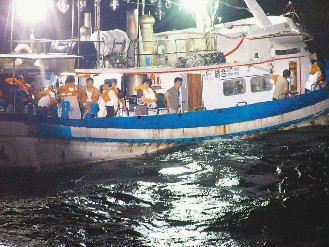


























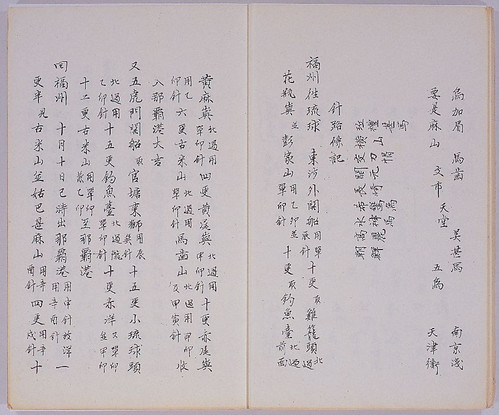







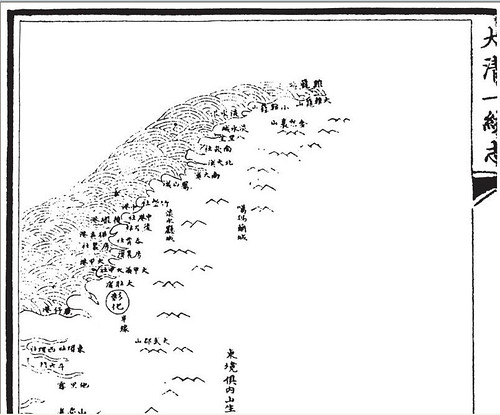




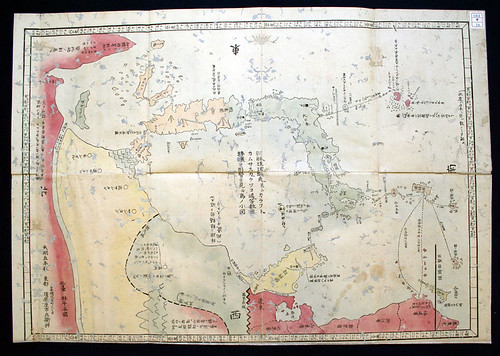








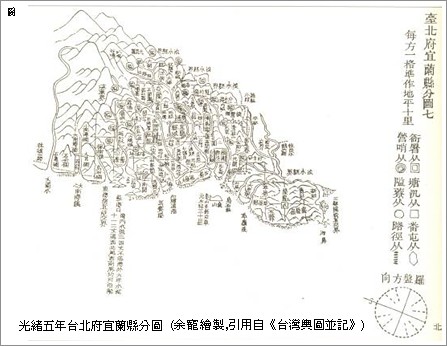



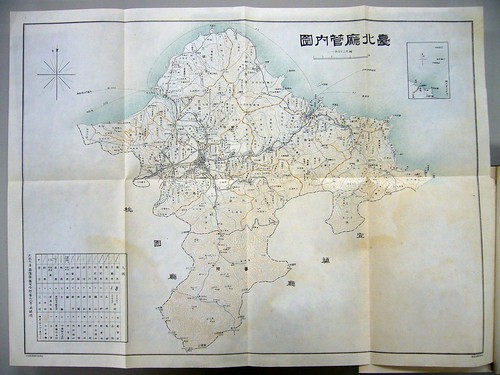
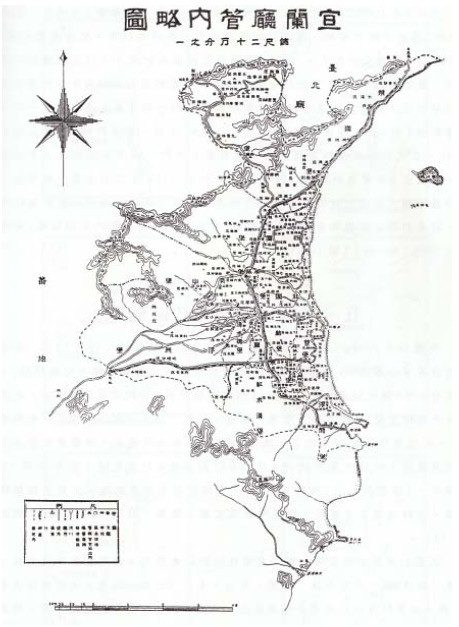
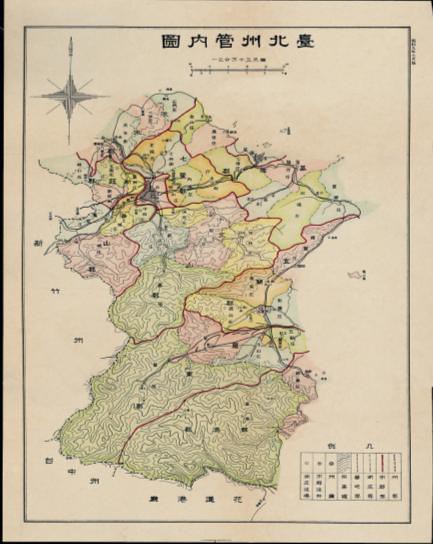




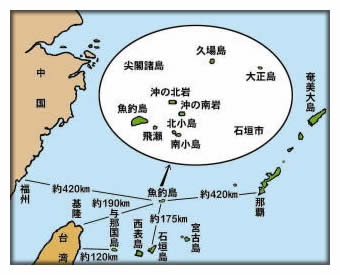
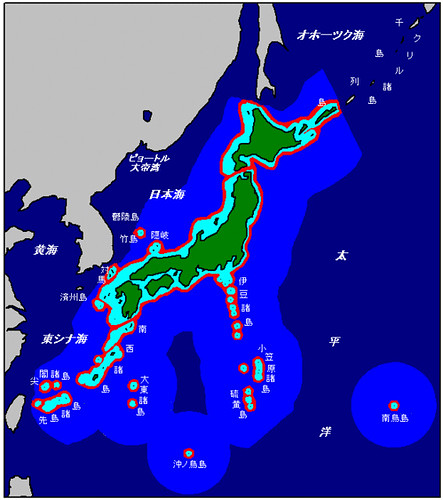









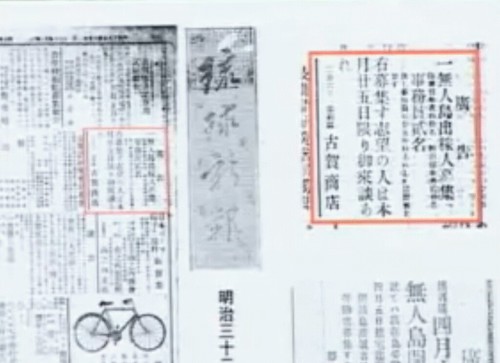
















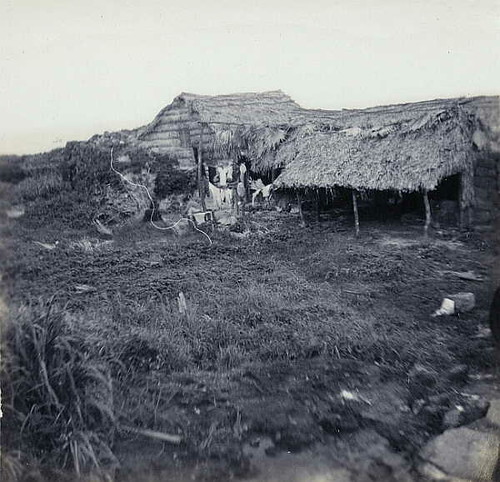







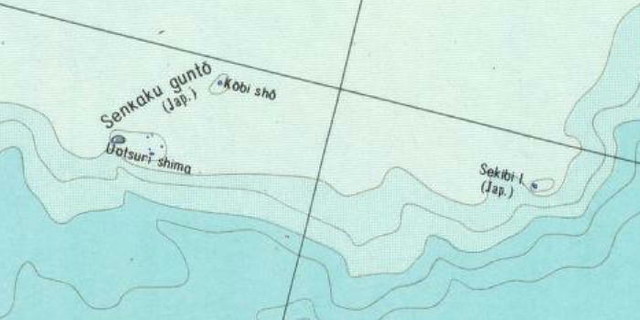


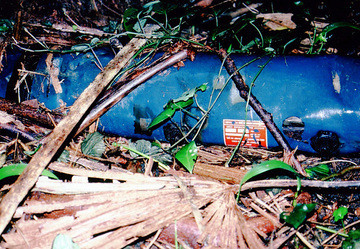
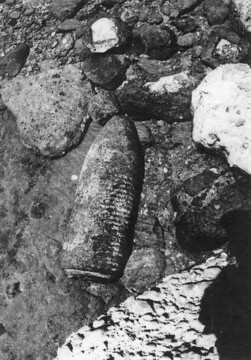




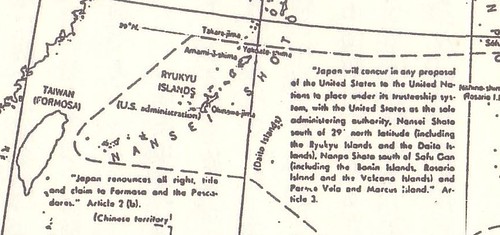
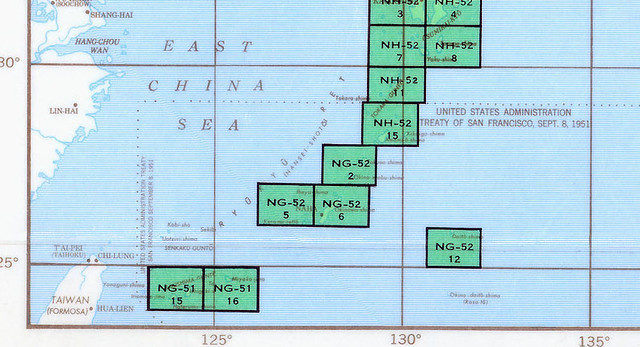



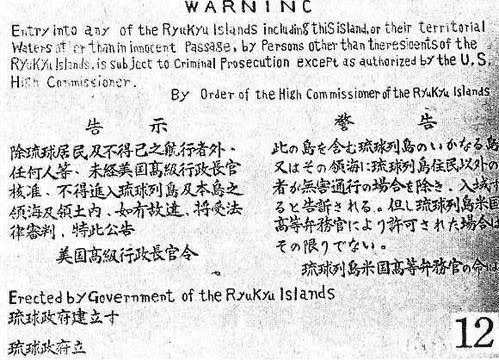


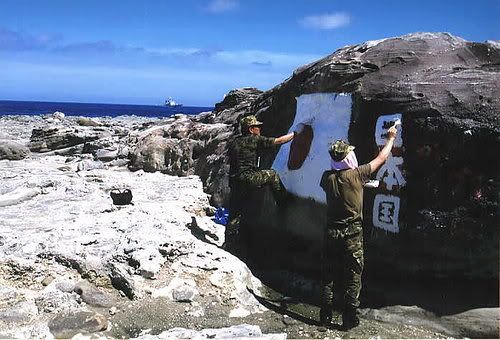

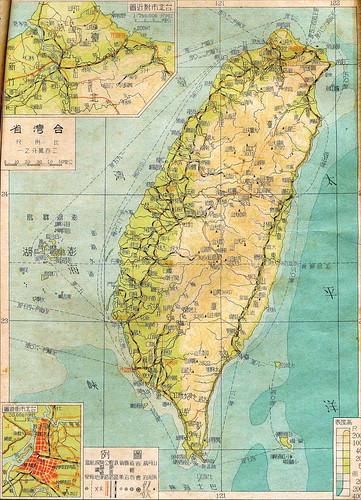
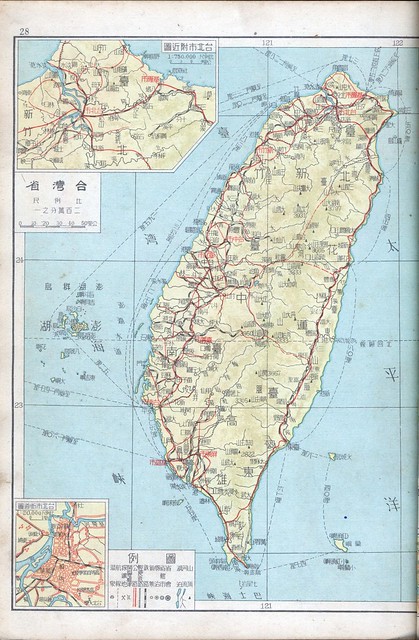
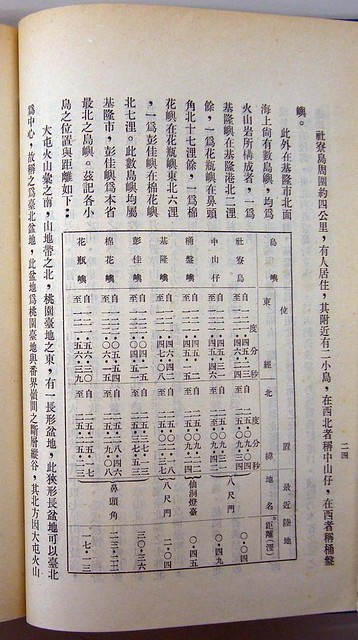

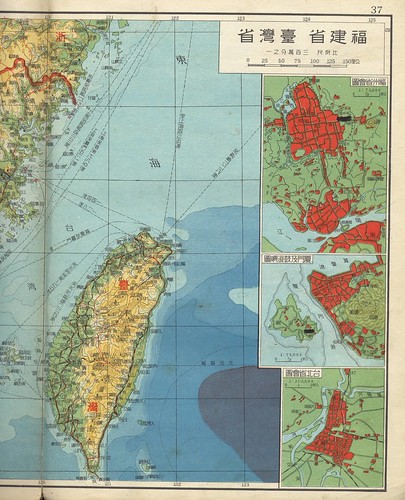
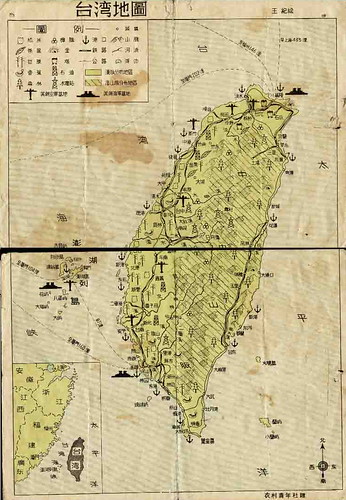





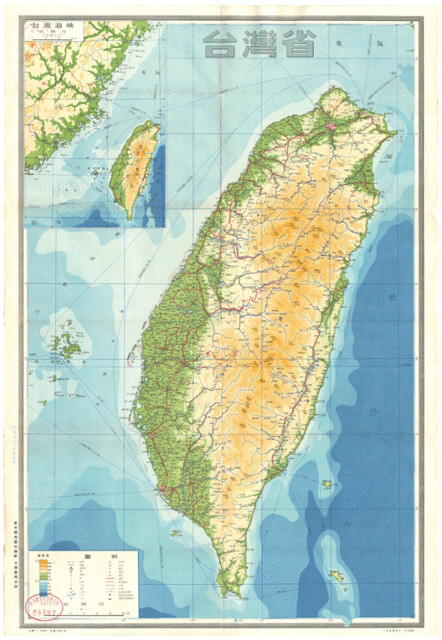

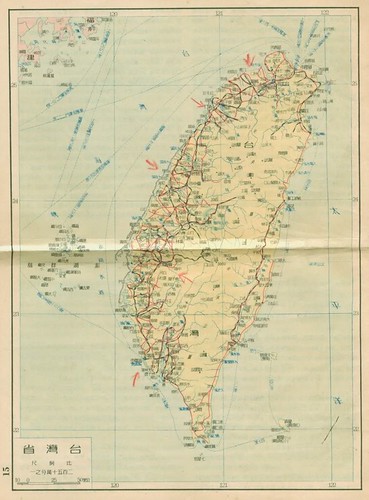
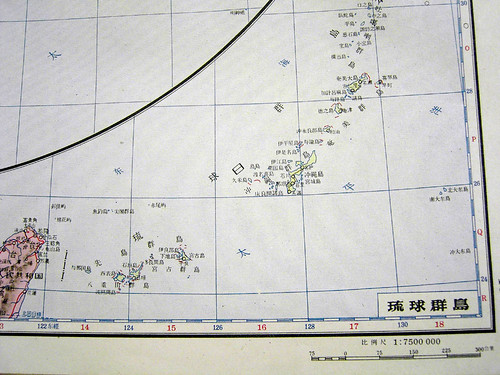
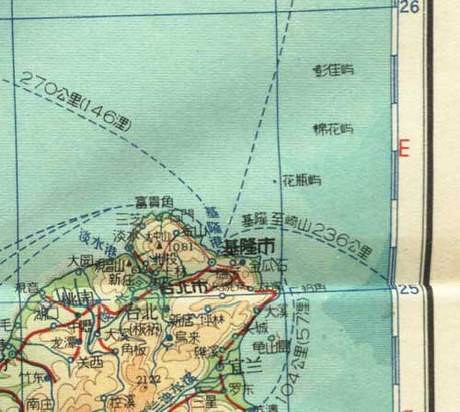

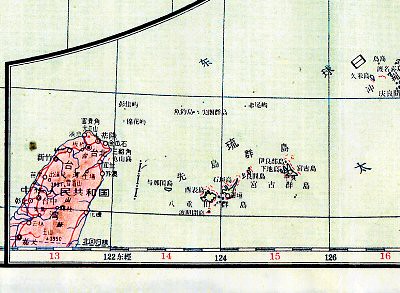




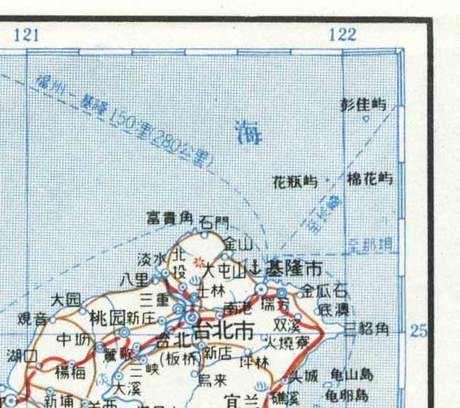















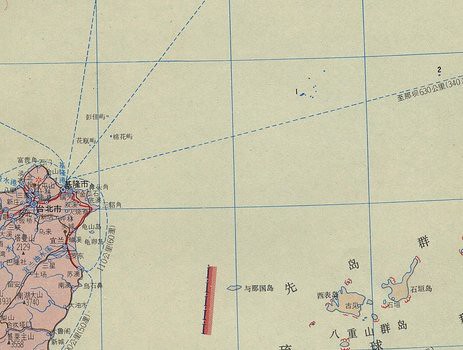


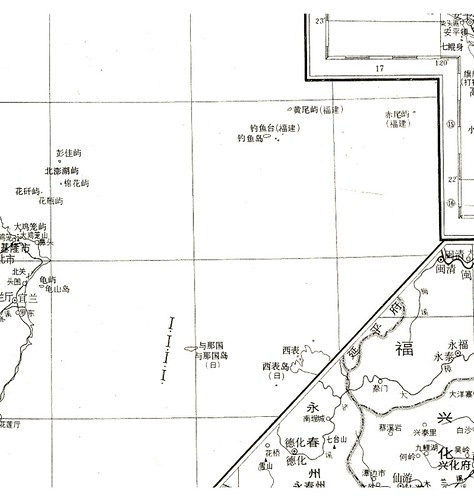

 蔣宋美齡是位傑出的外交家,只是對日本史不夠熟諳。接近二戰尾聲、日本潰不成軍之際,倘若宋美齡當時對日本史有充足的了解,那麼釣魚台(日文稱尖閣諸島)主權爭議也就無從而生。
蔣宋美齡是位傑出的外交家,只是對日本史不夠熟諳。接近二戰尾聲、日本潰不成軍之際,倘若宋美齡當時對日本史有充足的了解,那麼釣魚台(日文稱尖閣諸島)主權爭議也就無從而生。





